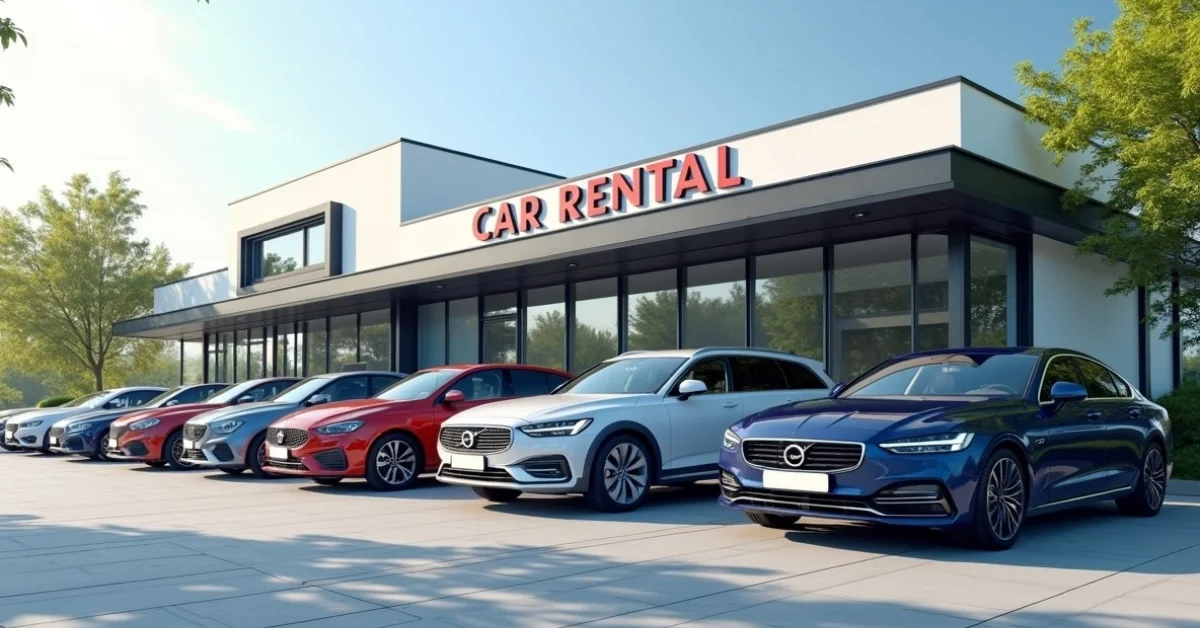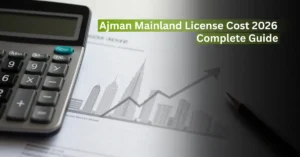Introduction
A car rental business allows customers to hire vehicles for short or long periods, offering flexibility without the commitment of ownership. From tourists needing transportation during a holiday to corporate clients booking cars for business use, demand is strong worldwide.
In recent years, many entrepreneurs have turned to this industry because it combines steady customer demand with scalable growth opportunities. With the rise of tourism, business travel, and digital booking platforms, car rentals have become more profitable and easier to manage.
But before starting, every new business owner asks the same question: What is the cost of starting a car rental business? The investment depends on factors like location, fleet size, licensing, and operational expenses. This blog breaks down all the important cost elements so you can plan effectively.
Factors That Influence the Cost of Starting a Car Rental Business
1. Location and Target Market
The city or country where you operate plays a huge role in overall costs. In major tourist destinations, starting costs are higher due to demand, licensing fees, and office rentals. At the same time, target customers also matter. Serving luxury travelers requires bigger investments compared to offering budget-friendly cars for locals.
2. Type of Cars
The choice of vehicles has a direct impact on your investment. Economy cars cost less to purchase and maintain, making them ideal for startups. SUVs, luxury cars, or electric vehicles require higher upfront costs but can deliver bigger profits per rental. Your fleet mix should match customer demand in your region.
3. Business Size
Starting small with a few cars reduces risk and lowers investment. However, a large fleet allows you to serve more customers and generate higher revenue. The size of your business determines the budget needed for cars, staff, office space, and marketing.
4. Licensing and Legal Requirements
Every country requires permits and trade licenses for running a car rental business. The cost varies depending on local laws. In some regions, insurance deposits or government approvals also add to the initial budget. Ignoring this step can lead to penalties and legal issues.
5. Marketing and Branding
In today’s competitive market, strong branding is just as important as a fleet of cars. Designing a professional website, creating mobile booking apps, and running digital marketing campaigns are necessary expenses. A well-planned marketing strategy helps attract customers quickly and increases revenue.
Initial Setup Costs of a Car Rental Business
1. Business Registration and Licensing Fees
The first cost every entrepreneur faces is getting the business legally registered. This includes trade licenses, permits, and local authority approvals. Depending on your country, this can cost anywhere between a few hundred and several thousand dollars. Some regions also require a commercial license for operating rental cars.
2. Office Setup and Rental Space
Having a physical office creates trust and provides a place for customers to sign contracts or collect cars. Rental costs depend on location—offices near airports or tourist areas are more expensive. You also need furniture, internet, and utilities. On the other hand, if you want to cut costs, you can start with a small office or operate mainly online with a virtual presence.
3. Fleet Purchase or Leasing
This is the largest part of your investment. You can either buy cars or lease them. Buying requires higher capital but offers long-term ownership. Leasing reduces upfront costs but involves monthly payments.
- Economy cars: $10,000–$20,000 per vehicle
- SUVs: $25,000–$40,000 per vehicle
- Luxury cars: $50,000+ per vehicle
If you start with 5 cars, your initial fleet cost could range from $50,000 to $150,000, depending on the type of vehicles you choose.
4. Insurance and Legal Coverage
Insurance protects both your business and customers. The main types include fleet insurance, liability insurance, and accident coverage. Premiums depend on car type, fleet size, and local regulations. On average, insurance may cost between $1,000 and $3,000 per car annually. While this seems high, it’s a non-negotiable expense for running a legal and safe business.
Operational Costs of Running a Car Rental Business
1. Staff Salaries and Training
Even if you start small, you need employees to handle bookings, customer service, and vehicle management. Larger businesses may also hire drivers, mechanics, and accountants. Salaries vary by region, but budgeting for staff expenses is crucial. Training is also necessary to ensure staff provide professional customer service and follow safety standards.
2. Vehicle Maintenance and Fuel
Cars require regular maintenance to remain safe and reliable. This includes oil changes, tire replacements, inspections, and unexpected repairs. Ignoring maintenance increases long-term costs. Fuel is another major expense, though many companies pass this cost to customers. Investing in fuel management systems can help reduce wastage.
3. Marketing and Online Presence
In the digital age, customers prefer booking cars online. That means you need a professional website, mobile app, and online booking system. The cost of building and maintaining these can range from a few thousand dollars to much more, depending on features. Additionally, you should budget for online advertising, SEO, and social media campaigns to reach your target audience.
4. Technology and Software
Car rental management software helps automate reservations, payments, and fleet tracking. This investment reduces human errors and improves efficiency. Subscription-based software can cost anywhere from $50 to $500 per month, depending on the size of your fleet and required features.
Hidden and Unexpected Costs
Even after accounting for setup and operational expenses, some hidden costs often surprise new business owners. Planning for these expenses will prevent financial stress.
1. Security Deposits for Rentals
Most car rental businesses require customers to leave a security deposit. While this provides protection, holding and refunding deposits can create short-term cash flow challenges.
2. Parking and Storage Charges
When cars are not in use, they need safe and legal parking. Leasing or maintaining storage space adds extra monthly costs. In busy cities, parking expenses can be significant.
3. Emergency Repair Funds
Unexpected breakdowns or accidents can happen at any time. Having an emergency repair fund ensures your fleet stays on the road without major disruptions.
4. Seasonal Fluctuations in Demand
Car rentals are highly seasonal in many regions. Demand may peak during holidays or tourist seasons but slow down at other times. You must budget for low-demand months to balance revenue.
Estimated Cost Breakdown: Small vs. Large Car Rental Business
To give a clearer picture, here’s an estimated cost breakdown for different scales of business. Actual figures vary depending on location, car models, and business structure, but this table provides a practical guide:
| Business Size | Fleet Size | Estimated Initial Investment | Annual Operating Costs | Potential Annual Revenue |
| Small Startup | 2–5 cars | $50,000–$100,000 | $20,000 – $40,000 | $60,000–$120,000 |
| Medium-Size Business | 10–20 cars | $150,000–$400,000 | $60,000–$120,000 | $200,000–$500,000 |
| Large-Scale Company | 50+ cars | $600,000 – $1,000,000+ | $250,000–$500,000 | $1,000,000+ |
This breakdown shows that starting small reduces risk and investment, while scaling up requires higher funding but offers greater profit potential.
Tips to Reduce the Cost of Starting a Car Rental Business
Launching a car rental business doesn’t have to drain your entire savings. With the right strategies, you can lower startup costs without sacrificing quality.
1. Start with a Smaller Fleet
Instead of launching with dozens of cars, begin with a handful. This reduces upfront costs and allows you to test market demand before expanding.
2. Lease Vehicles Instead of Buying
Leasing cars requires less capital than outright purchase. It also gives flexibility to upgrade or change vehicles as demand evolves.
3. Use Second-Hand or Certified Pre-Owned Cars
Buying certified pre-owned vehicles cuts initial costs while still ensuring reliability. Customers often don’t mind as long as the cars are clean and well-maintained.
4. Focus on Online Marketing Instead of Costly Offline Campaigns
Traditional marketing methods like billboards and newspaper ads are expensive. Online strategies such as SEO, Google Ads, and social media marketing are cheaper and more effective in reaching potential customers.
Is the Car Rental Business Profitable?
One of the most common questions is whether the investment is worth it. The short answer: yes, the car rental business can be highly profitable when managed well.
1. Profit Margins in the Car Rental Industry
On average, profit margins range from 10% to 30%, depending on fleet size, operational efficiency, and demand. Luxury cars often bring higher margins per rental but also involve bigger risks.
2. ROI Timeline for Small and Large Businesses
A small rental company can break even within 1–2 years if customer demand is steady. Large-scale businesses may take 3–5 years to recover initial investments but deliver higher long-term profits.
3. Market Demand and Growth Potential
The car rental industry continues to grow worldwide, driven by travel, tourism, and the rise of app-based bookings. With electric and hybrid cars entering the market, there are new opportunities for eco-friendly rentals that can attract a modern customer base.
Conclusion
The cost of starting a car rental business depends on several factors, including fleet size, location, licensing, and marketing. Initial investment can range from $50,000 for a small startup to over $1 million for a large-scale company. Beyond the visible expenses, hidden costs such as parking, insurance, and seasonal demand also play a big role.
Careful planning, smart cost-cutting strategies, and choosing the right fleet size can reduce risks and make the business more profitable. With strong demand, flexible pricing, and proper management, a car rental business can generate steady income and long-term growth.
If you are considering this opportunity, take time to research local regulations, create a financial plan, and start small before scaling up. With the right approach, your car rental venture can be both cost-efficient and profitable.
Disclaimer: The information in this article is for general guidance only. Actual costs of starting a car rental business may vary depending on location, regulations, and individual business requirements. It is recommended to consult with local authorities or a professional advisor before making financial or legal decisions.






